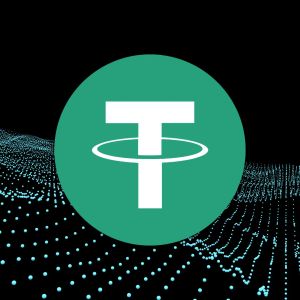Paolo Ardoino, the CEO of Tether, has revealed that Tether is considering the introduction of a new U.S.-domiciled stablecoin as a solution to the impending regulatory legislation. With the growth and integration of the cryptocurrency industry, several jurisdictions around the world have begun creating stablecoin-specific regulations to control the effects on their financial systems. These new laws could impact several businesses. Tether, in particular has faced setbacks in certain markets. Earlier this week, Binance delisted USDT from its European sites, as the stablecoin does not comply with the European Union’s new requirements for stablecoin issuers. Ardoino, the CEO, stated that despite the company’s investments in multiple European companies launching grassroots dollar- and euro-backed stablecoins compliant with EU regulations, he pictures a future long-term reality in which USDT is no longer a major player in either the United States or Europe. Now facing a ban in the U.S., the company is open to considering alternatives. Tether could issue a new stablecoin Tether is contemplating a new, U.S.-domiciled stablecoin to comply with the new regulations imposed by the Trump administration. The U.S. Congress has made changes to legislation to create clearer rules and regulations for stablecoins. The proposed bills, notably the STABLE and GENIUS Acts, seek to impose strict supervision on stablecoin issuers. This supervision will include mandatory reserve requirements and regular audits. These measures are aimed at enhancing transparency and ensuring the financial stability of these digital assets. The GENIUS Act, introduced by Republican Senator Bill Hagerty, is particularly noteworthy. The bill necessitates that stablecoin issuers with assets exceeding $10B must undergo strict federal supervision, including monthly disclosures of reserve compositions to the Office of the Comptroller of the Currency. This level of scrutiny is unprecedented for Tether, which has historically operated with limited regulatory oversight. The company is a $144B stablecoin giant and has never submitted to a full financial audit. As such, it is particularly difficult to comply with these regulations. Critics and competitors of the company have argued it would exit the U.S. altogether if it was forced to comply with the country’s anti-terrorism and anti-money laundering rules. Ardoino emphasized Tether’s commitment to compliance and transparency in an interview with The Guardian. He referenced his company’s cooperation with over 200 agencies worldwide to combat illicit activities. Even then, adapting USDT to meet the specific requirements of the new STABLE and GENIUS Acts will be challenging for the company. That’s why it’s looking at a new stablecoin better specifically for the U.S. market. USDT alternatives are jockeying for Tether’s spot Competitors like Circle , the issuer of USDC, are well-positioned to capitalize on the emerging regulatory framework. Circle has demonstrated a strong commitment to transparency. The company is regularly audited by Deloitte, and as such compliance to the new U.S. regulations should not be an issue for the company. Its compliance readiness may also create an avenue for Circle to get a competitive edge over Tether, which could potentially reshape the dynamics of the stablecoin market. Ardoino maintains that Tether has “the highest level of compliance” among its competitors when it comes to cooperation with law enforcement. He stated that Tether is currently in conversations with multiple accounting firms about a full audit but that the firms have so far been rightfully cautious about engaging with the novel stablecoin market. Ardoino also bashed his competitors , claiming that he would stay out of the U.S. due to the new regulations. He perceives “the smell of desperation” from these companies and says that they are simply hoping that his company would stay out of the United States. The Tether CEO has said he believes that USDT will remain listed on U.S. secondary markets. He added that the access to USDT globally is “very important for remittances.” Presently, the Senate’s stablecoin bill only bans non-compliant stablecoin issuers from offering tokens directly to American users. The House bill goes further and bans the trade of such non-compliant tokens on exchange platforms like Coinbase two years after the law goes into effect. Cryptopolitan Academy: Coming Soon - A New Way to Earn Passive Income with DeFi in 2025. Learn More















